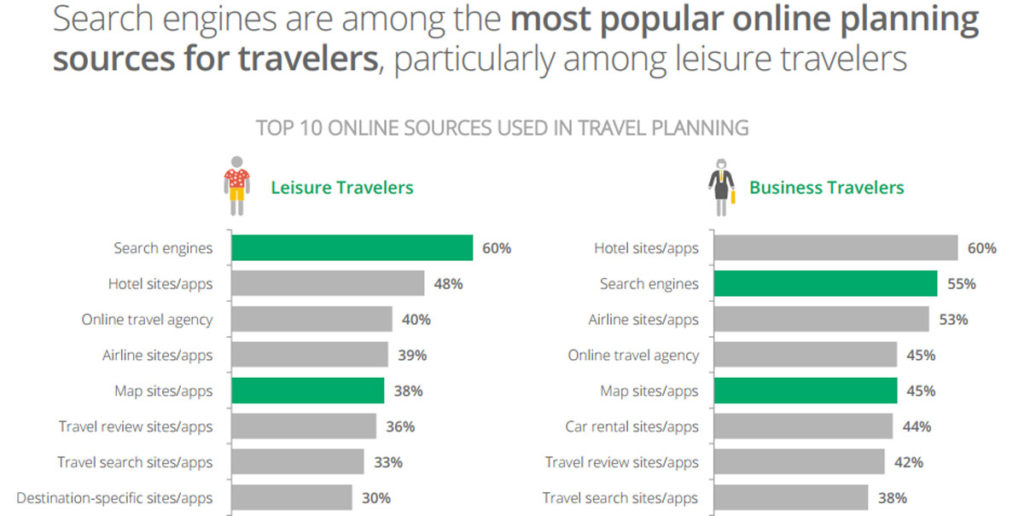
The hotel niche has been one of the most competitive niches for some time now, with individual hotels and hotel chains competing against OTA (online travel aggregators) and price comparison booking sites.
Google has since increased its own assets in the marketplace, with a number of changes to how it presents hotels within search over the past year:
- Google Adds Hotel Bookings to Search Results
- Google Local Search Grades Hotels Based on Location
- Google Redesigns the Hotel Search Experience on Desktop
As well as new search features and special content result blocks, such as Google Hotels.
A lot of hotels are themselves listed on the comparison sites, as a necessary evil due to the amount of traffic and bookings these websites generate, but this comes at a considerable cost.
I know one bed and breakfast in the English seaside town of Whitby paid more than £8,000 in fees for bookings taken through travel comparison websites, which when you’re in a price-competitive market as it is can really put the squeeze on your margins.
It’s also relevant to say that there are differences between leisure and business travelers, and not all journeys from research to booking are linear, however search engines (such as Google) still play a big role in this journey.

Because of this, attracting users and taking bookings directly is almost invaluable in a hypercompetitive market place.
However, it isn’t a lost cause. There are a lot of local SEO tactics and strategies that hotels can use to:
- Increase prominence within search results at various stages of the user cycle.
- Increase their traffic.
- Ultimately convert the traffic into bookings.
Firstly, let us look at how you can improve your rankings and traffic for relevant search phrases.
Optimize Your Website’s Content & Structure
Start with Keyword Research
Naturally, your hotel’s website may rank organically for a number of terms through location and naturally creating content, but by knowing exactly what your target audience is searching for can help take your website to the next level in terms of generating traffic and bookings.
Create Better Local Content
Once you’ve done your keyword research, it’s important that you create local content to not only promote your rooms and hotel services, but also non-commercial supporting content to increase the relevancy of your hotel website as both a hotel and its association with the geographical area.
How often should supporting content be produced?
Honestly, it doesn’t matter, as long as you’re strategy and implementation is consistent.
There are a lot of differing opinions on this. Some people believe content should be produced monthly, weekly, or even more frequently.
Whatever you choose, consistency is key.
Optimize Your Title Tags & Meta Descriptions
Unless your hotel is a well-known brand that invests in omni-channel marketing campaigns, it’s unlikely that many people are searching for your hotel’s brand.
From experience and testing, there is a strong correlation that title tags still carry significant weighting in determining how highly Google ranks your content. Because of this, it’s important to ask the question, does my brand matter?
Title tags are limited by pixel width (easier to measure in terms of characters) and as a result, your brand/hotel name can take up valuable real-estate that could be better used for targeted keywords – and then appending the end of the title tag with the brand name, if there is space.
The meta description, on the other hand, behaves differently than title tags. They don’t directly influence rankings, but meta descriptions can impact click-throughs.




